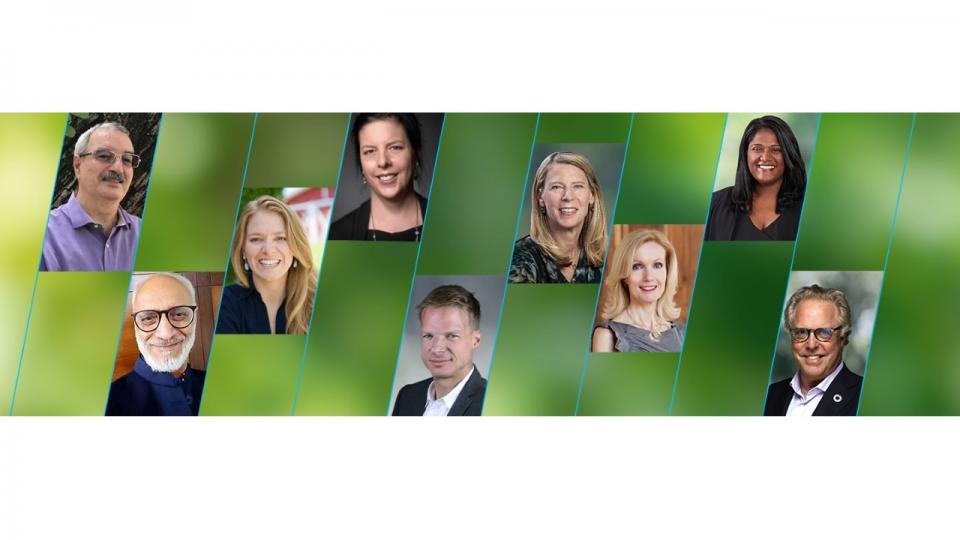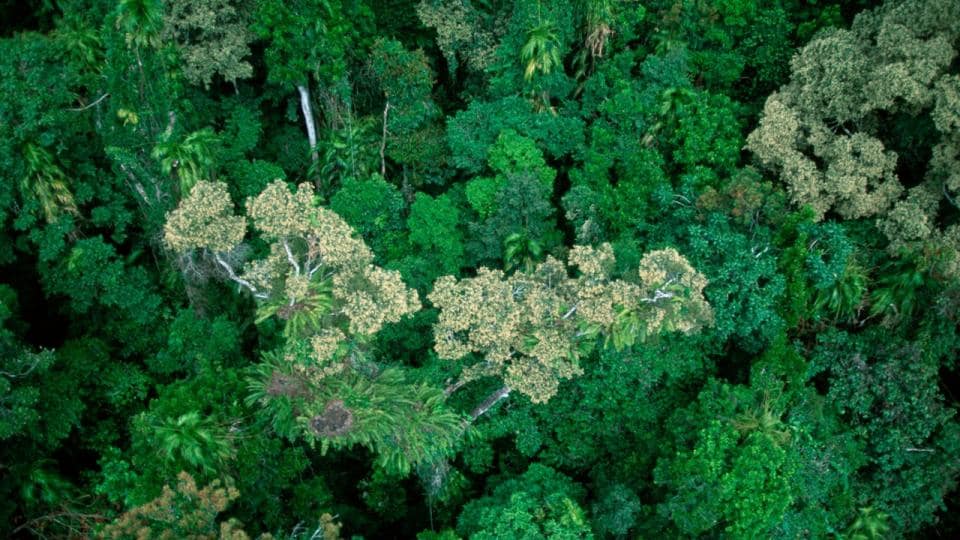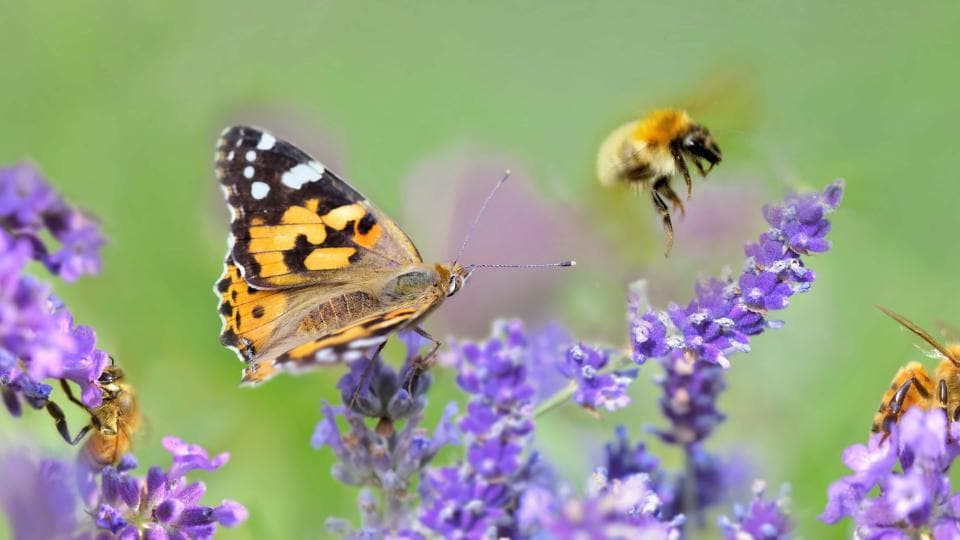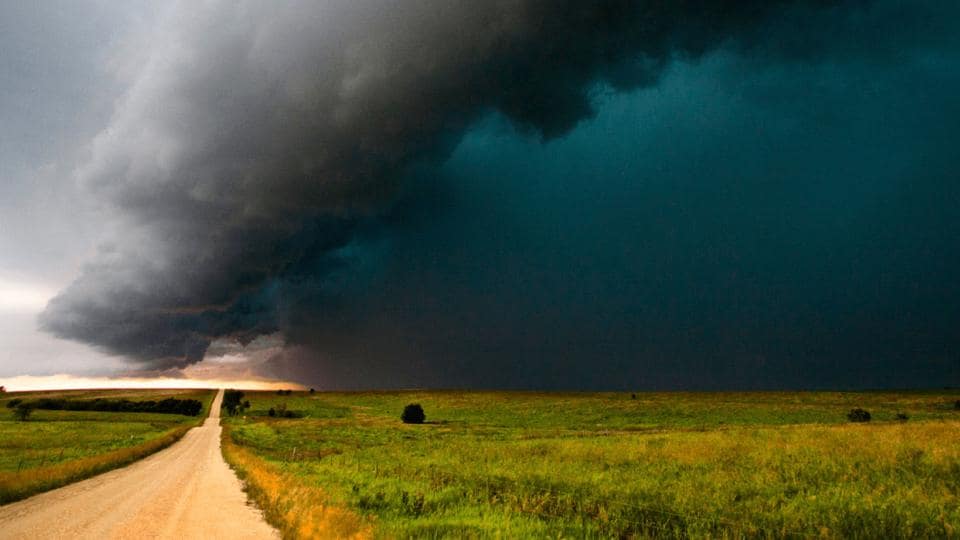Bayer Joins Coalitions to Conquer Deforestation and Preserve Biodiversity

Matthias Berninger, Global Head of Public Affairs, Science & Sustainability at Bayer, discusses deforestation and its impact on biodiversity as well as some of the recent initiatives by Bayer to pioneer new standards of sustainability.
Biodiversity loss has alarmingly increased in the last several decades and deforestation is a significant contributor. Forests are home to 80% of the world’s biodiversity. They help mitigate climate change, are critical for water cycles, and filter the air that we breathe. Protecting tropical forests offers a significant opportunity for climate action. Bayer is joining forces with governments and companies from the agricultural finance industry, environmental protection organizations and academia to create and implement actionable solutions to reshape the health of our planet.
Matthias, the devastating fires in the Amazon forest in 2019 and 2020 were all over the news. What is your view on the current situation?
The science is clear: Deforestation remains one of the biggest contributors to climate change and leads to enormous biodiversity loss. 2020 saw the destruction of 4,280 square miles of forest in the Brazilian Amazon, a 12-year high. Despite all efforts to halt deforestation, the world is losing forests the size of Kenya every year. This is a global challenge. In Asia, the main cause is a growing consumer class. In Africa, population growth and basic needs like firewood are a major factor. In Brazil, deforestation is mainly caused by mining, timber industries, and by the world’s growing demand for meat.
The situation is dire. What can corporations like Bayer do?
Business needs to support forest protection and efforts to protect biodiversity. Bayer is part of a coalition of 200 leading value chain partners and non-governmental organizations (NGOs). We are taking a clear stand to call for enforcing forest protection laws and to drive sustainable intensification of agriculture in Brazil. Deforestation is a global challenge and actions in one country or region can have impacts elsewhere. While we have focused significant efforts on reducing deforestation in Brazil, we also aim to apply these successes and learnings in other countries. One step towards that goal is our recent joining of the LEAF (Lowering Emissions by Accelerating Forest finance) Coalition, which seeks to mobilize already in its first year at least $1 billion in financing to launch what is anticipated to become one of the largest public-private efforts to protect tropical forests. And just this week, Bayer, IFPRI and ETH announced a research collaboration to address how agriculture can develop and implement new solutions to reduce its impact on biodiversity. We at Bayer are convinced that business strategies depending on net-deforestation will have no future. This is a message that corporations don’t only hear from external stakeholders; many shareholders are also clear on their concerns about deforestation.
Could you elaborate on the value Bayer brings to the table?
Bayer has the scale and geographic spread to make a real difference here. That is why forest protection is a key element of Bayer’s climate action plan. We are already collaborating with civil society and other private and public sector entities to put forward solutions that will protect biodiversity and forests. As a leading company, we are stepping up our game and engaging more broadly in the conversation with all relevant stakeholders, including brand owners, growers and suppliers to ensure that we help the value chain to take concerted action. We know we can’t solve this problem alone. And that is why these collaborations with relevant local and regional organizations that complement our technologies with their knowledge and networks are critical.
Sounds great, but not very tangible. How does this all become a reality?
It starts with supporting farmers who operate sustainably, legally and responsibly, and by having zero tolerance for those who farm on land converted illegally by deforestation. We also have to lead by example and work with third parties to certify our own seed production. We recently certified zero illegal deforestation in the production of our soybean seeds in Brazil and will next work to certify our corn seed production. We continually assess on-going compliance and are looking to expand this work to other crops and other regions. Our supplier code-of-conduct will play an additional role as well, e.g. to check suppliers for packaging and other raw materials.
Do you really think that Bayer can make a difference? What concrete efforts are underway?
Yes, definitely. Bayer is making a contribution in several different areas: our own operations, equipping our customers, and continuing to build partnerships and collaborations. As part of our climate strategy, we are supporting carbon offsetting globally. Bayer recently launched a new Carbon Initiative designed to reward farmers for sequestering carbon in the soil. As a term of participation in this program, Bayer requires full compliance with the Brazilian Forest Code. We also launched the Orbia Marketplace that helps farmers who need assistance with getting into compliance with the Forest Code. Through digital farming technologies, Bayer is looking into ways of supporting and incentivizing farmers to protect existing forests and natural habitats on their land by helping them to better evaluate the benefits of preserving habitats and forests versus farming marginal or less-productive land. However, hands-down our biggest contribution lies in innovation. As far as the demand for soy drives deforestation, we must continue to work harder to implement our innovations that increase yields. The more successful we are in sustainable intensification, the less pressure on further land-use extension there is.
What do you say to the skeptics who accuse governments and big businesses of greenwashing and using net zero targets to postpone real change?
We acknowledge that farming, like many other activities, has an impact on biodiversity. To meet the social, environmental and economic needs of a population that is growing in numbers and wealth, we need to further optimize agricultural production systems. We’re already making tangible contributions in the right direction and have a genuine interest to solve the problem. Biodiversity is central to the health of the planet and our business, as biodiversity is the foundation for farmers who need to manage their farms sustainably to make a living.
Any closing thoughts you’d like to share?
Biodiversity loss is a complex issue – there is no one single cause and therefore there is no single solution. However, biodiversity is critical to our vision of #Healthforall #Hungerfornone and as such we have a vested interest in trying to help fix it. We know that climate change and land use are top factors of biodiversity loss and these are two things where agriculture can play a significant part in making real progress.





















